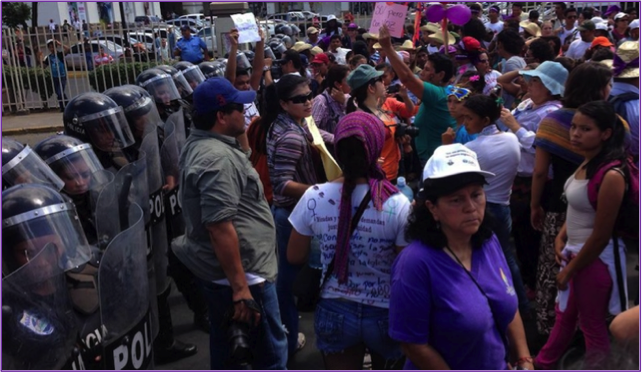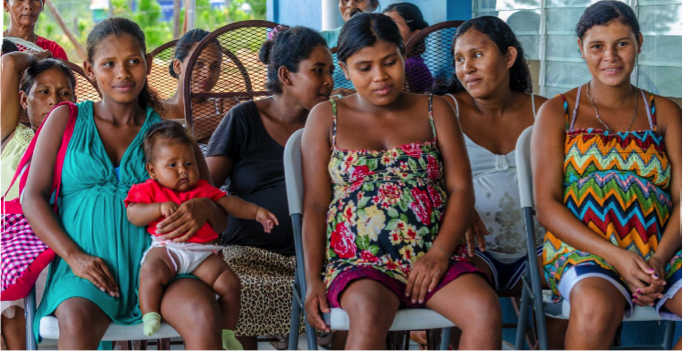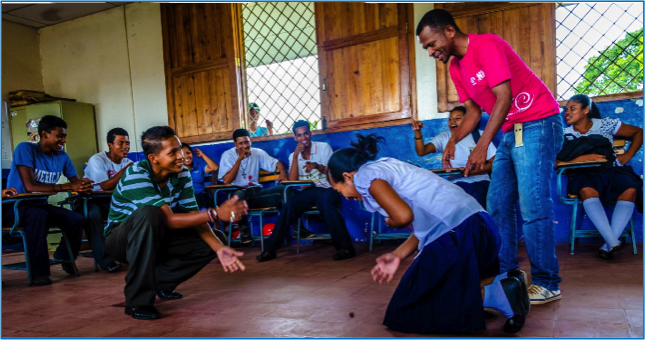by Kat Lister
12 November 2015

Photos by Benedicte Desrus for Global Fund for Women
[space_20]
[space_20]
Maria Fernanda Pineda Calero, age 16, is the teen coordinator for Women Constructors of Condega, a non-profit organization that promotes economic, political, and ideological empowerment for young women in northern Nicaragua. She leads the Born to Fly programme, which she joined at age 12, and runs workshops in this small rural community in the Esteli region. Her job consists of educating and training girls on their sexual, reproductive, and citizenship rights in the hope that the knowledge will be shared further through youth camps and forums.
[space_20]
The women of Nicaragua are fighting a longstanding battle for autonomy over their own bodies. In October 2006, the Nicaraguan government banned abortion in all circumstances. Women’s rights advocates have reportedly been subject to “official investigations” into their work ever since they started campaigning against the ban in 2006.
[space_20]
In recent years, women’s human rights defenders in Nicaragua have reported being subjected to acts of intimidation, including threatening calls and acts of vandalism. In March 2014, the International Women’s Day march was blocked by riot police.
[space_20]
 |
|
Photo: Carlos Herrera
|
[space_20]
Spiralling levels of poverty and sexual violence have left Nicaragua with the highest rate of teenage pregnancy in Latin America. 28% of Nicaraguan girls give birth before the age of 18. Sex education is seen as taboo; outreach projects are the only way to provide information.
[space_20]
[space_20]
“I had just turned 14 when I fell pregnant… I’d been going out with my boyfriend for a year. He was 18. I knew vaguely how to protect myself, but he didn’t like using condoms. We had unprotected sex and I became pregnant. My mother grew suspicious around the sixth month. I took a test, which confirmed it. When I told my boyfriend, he disappeared. I never saw him again.” She stayed in school up until she gave birth, but afterwards she had to leave to look after her baby.”
[space_20]
 |
|
Teenage mothers in Nicaragua
|
[space_20]
“During my journey to school, I met an older man. He was 29 and I was 14. He kept asking me to go out with him. Eventually, I said yes.” Jennifer kept her pregnancy a secret for 6 months until her mother found out. “My mother was so angry, she beat me and threw me out of the house. I only saw the father of my child twice – but on both occasions he was aggressive.” Jennifer is now in a shelter for girls supported by Plan International Nicaragua, where she sought safety after she gave birth. The shelter provides a safe place to stay for those fleeing violence, along with health care, food and psychological support.
[space_20]
 |
|
Teenagers across the region are also rallying together to reduce the risk of teenage pregnancy in their community. Here, teenage sex educators take part in an activity during their meeting.
|
[space_20]
“Thanks to feminism, and [the] courageous women who gave their lives in the fight for gender equality,” Maria Fernanda Pineda Calero says, “today I understand that as a woman I have a right to political participation, to work, to study, to decide on my body and my life, to build my identity independently and without impositions from any man or formal institutions that dominated society in the past – like the church – or who still dominate today, like the state.”
[space_20]
[space_20]



